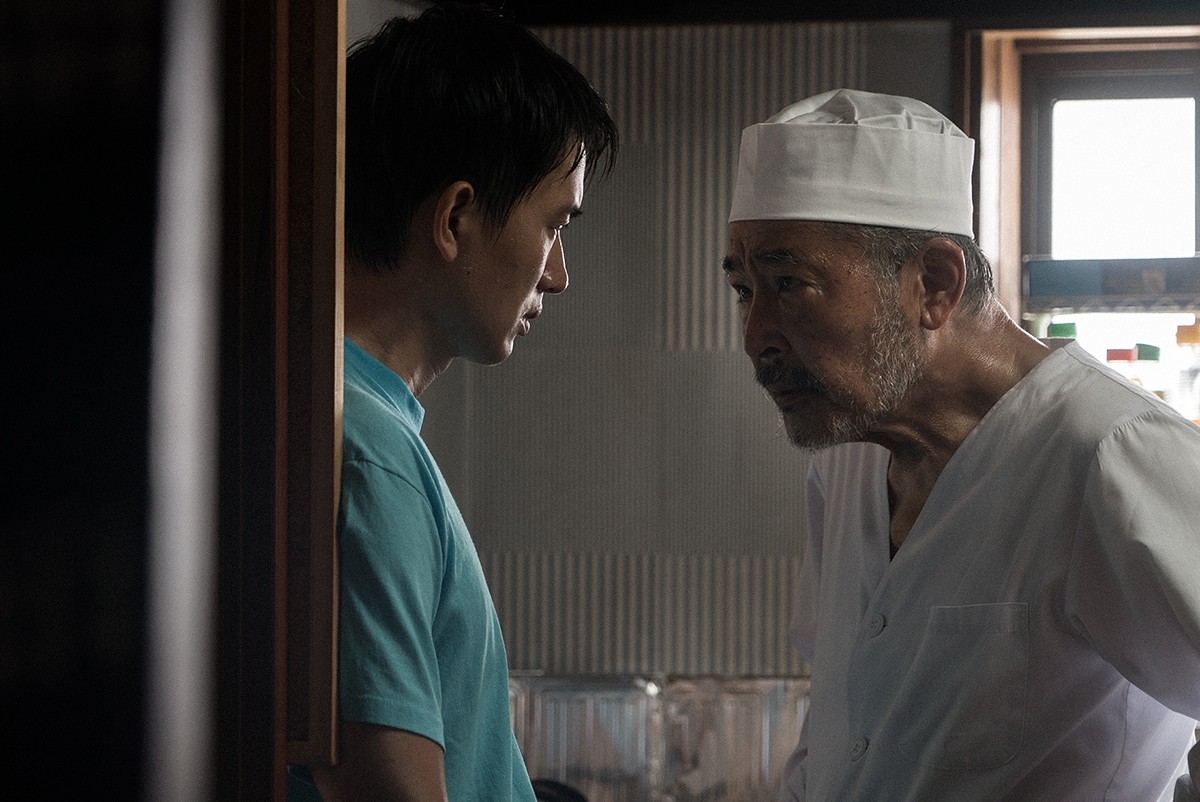Chen Liang has come from China’s Henan Province to work in Japan as a technical trainee, but runs away from his place of training and becomes an illegal resident. He lies to his mother back home that he is continuing his training all the while performing work-for-hire petty larceny. In an unexpected turn of events, he takes a call for a job meant for another and pretends to be that person. He starts his new life living and working at an elderly soba master’s soba restaurant in Yamagata with the fear that his identity could be exposed at any moment.
The feature length debut by Chikaura Kei deals with a timely issue–that of foreign workers, immigrants, or refugees making a new home in another country. Complicity in particular deals with “technical trainees” in Japan, a program for allowing foreigners to receive “training” while working in specific fields. The program has been criticized (and exploited) as a poorly veiled form of cheap labor. Rather than focus on the abuses which begins the story, the independent China-Japan co-production seeks to humanize the central character of Liang much in the same way Fujimoto Akio’s Passage of Life shines a light on the plight of migrants/overstayers in Japan who are often demonized by local media. The relationship Liang builds with Fuji Tatsuya’s soba master is the anchor of Chikaura’s intention as the mutual understanding and respect the two build look to be symbolic of the human bridges required to overcome the stigma branded upon foreign laborers. And if a segment of Japanese audience reactions –who could not see beyond the characters’ initial violation of immigration law–at Passasge of Life are to be a guide, Chikaura’s Complicity is likely a much needed addition to the discussion.
World Premiering at Toronto in 2018, it made its Japanese premiere at Tokyo FILMeX later that same year. From there it was a berth at the 2019 Berlin International Film Festival’s Culinary Cinema section.

